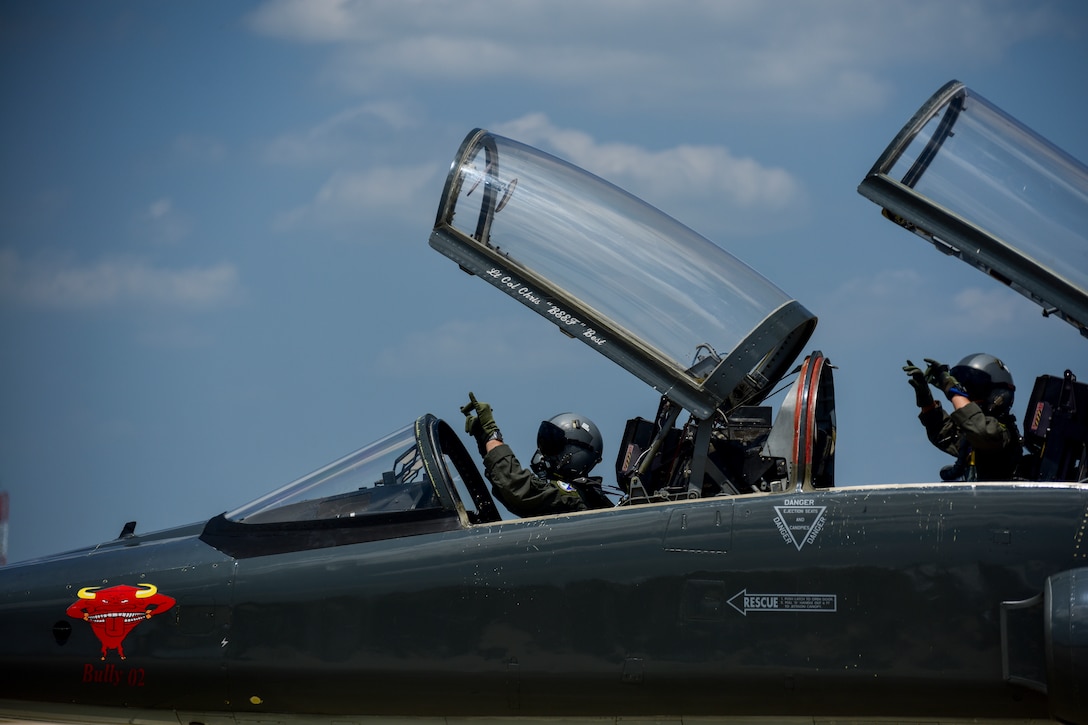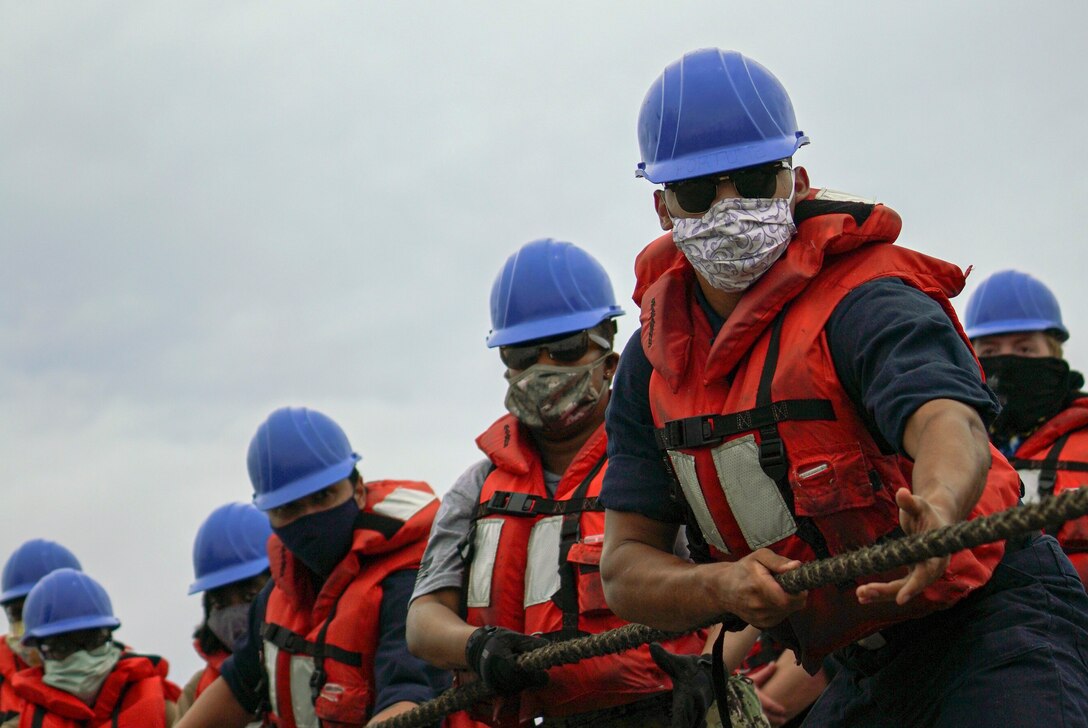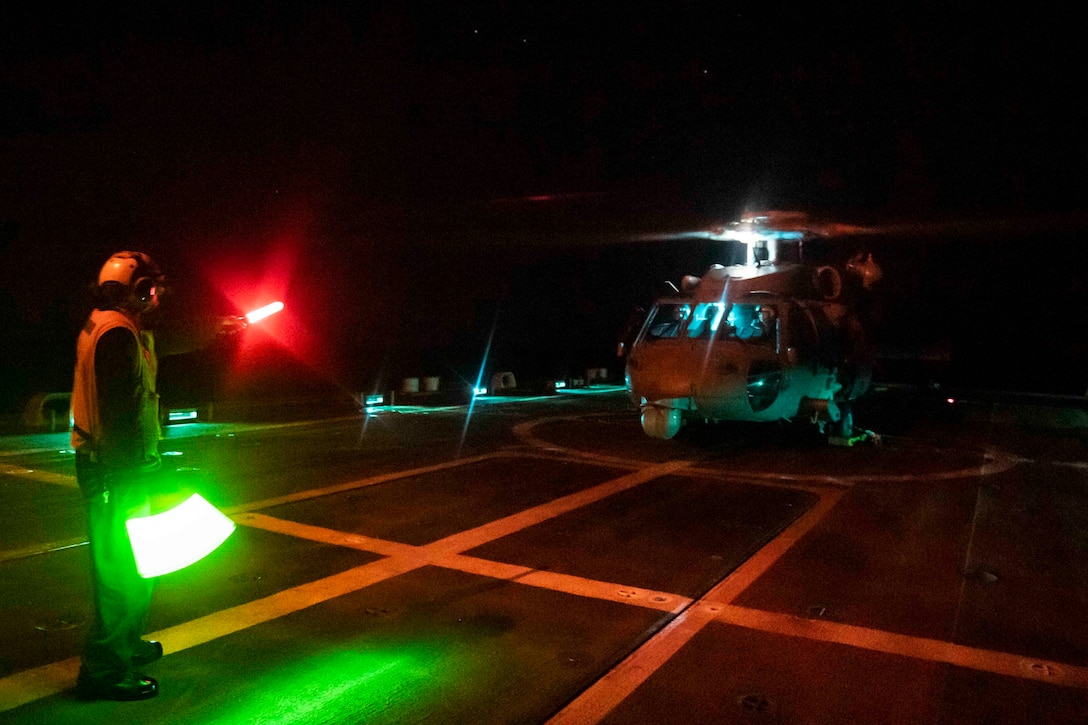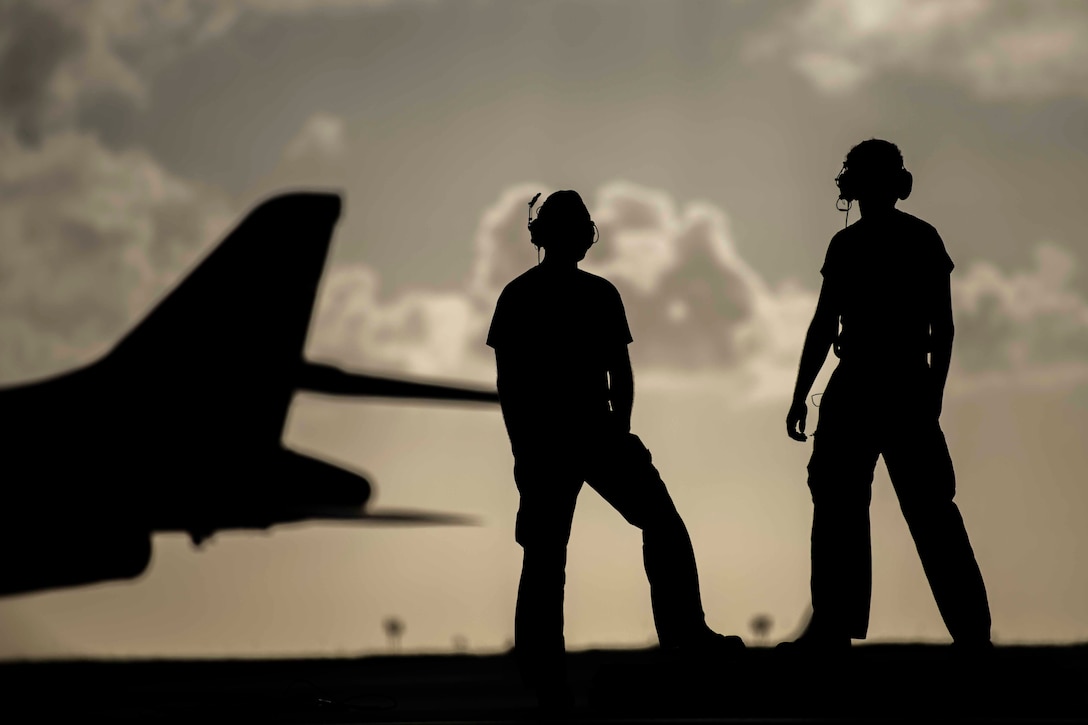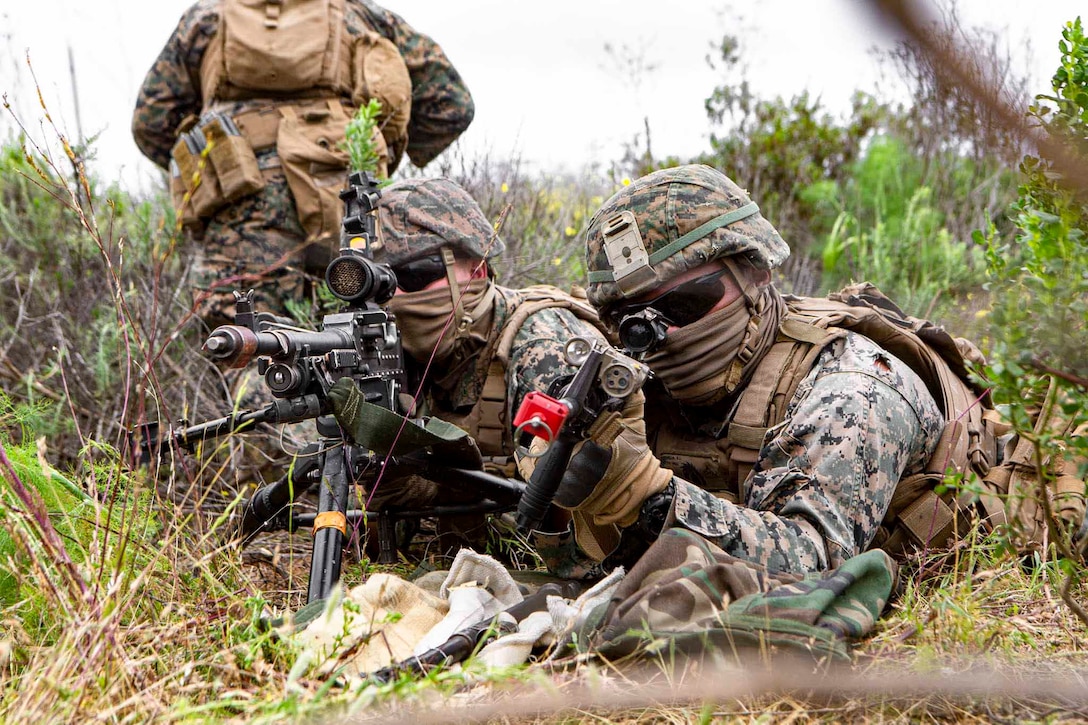Thursday, May 28, 2020
Flyover Preps
Military Medical Experts Explore Psychological Impacts of COVID-19
As the number of COVID-19 deaths in the U.S. exceeds 100,000 and people continue to take precautions, military medical experts expect the need for mental health care to increase because of stress, anxiety and other psychological symptoms.
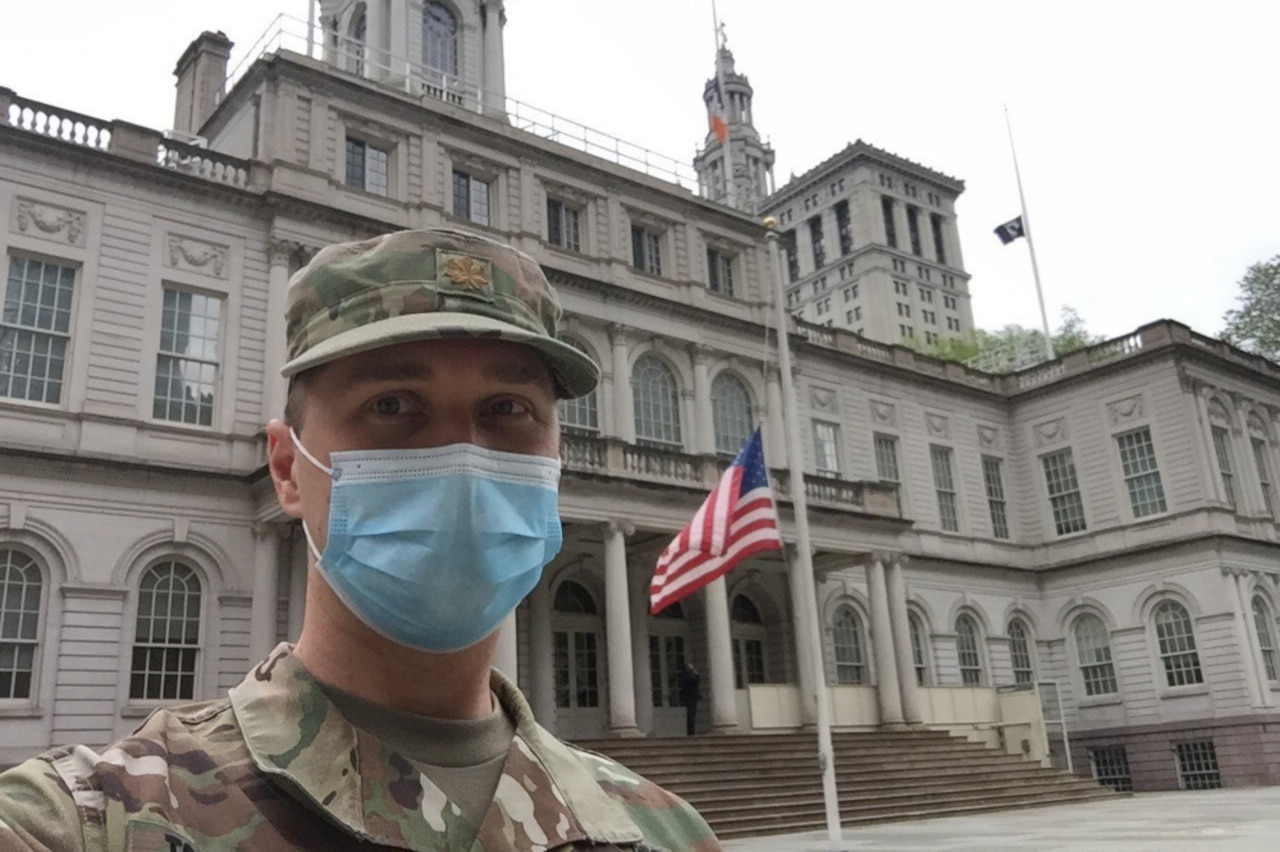
During the COVID-19 emergency and the existing phase in which some communities are starting to emerge from restrictions, the psychological impact can affect health care workers, service members, veterans, civilians and their families. Four medical specialists of the Military Health System agreed yesterday in a media telephone roundtable.
The panelists were Dr. Nicholas Polizzi, action officer for the inTransition Program and the Real Warriors Campaign, Psychological Health Center of Excellence; Dr. Holly O'Reilly, clinical psychologist with the Defense Health Agency; Army Col. (Dr.) David Benedek, chief of psychiatry at the Uniformed Services University of the Health Sciences; and Dr. Stephen Cozza, associate director of the Center for the Study of Traumatic Stress at the USUHS.
May is Mental Health Month, but the Defense Department focuses on the health of its people year-round, O'Reilly said, adding that this month's theme is "Need a Little Help."
"[S]ometimes a little bit of help is all we need to improve our mental health and [be] mission ready; taking small steps to address problems early on makes a big difference, especially during the pandemic," she explained.
"During the COVID-19 pandemic, people can experience stress, anxiety, fear, sadness and loneliness. It's changed how we live and … how we interact," O'Reilly said.
DOD has many resources for mental health help, she said, adding that service members and veterans are encouraged to ask for help and recognize that seeking help is a sign of strength.
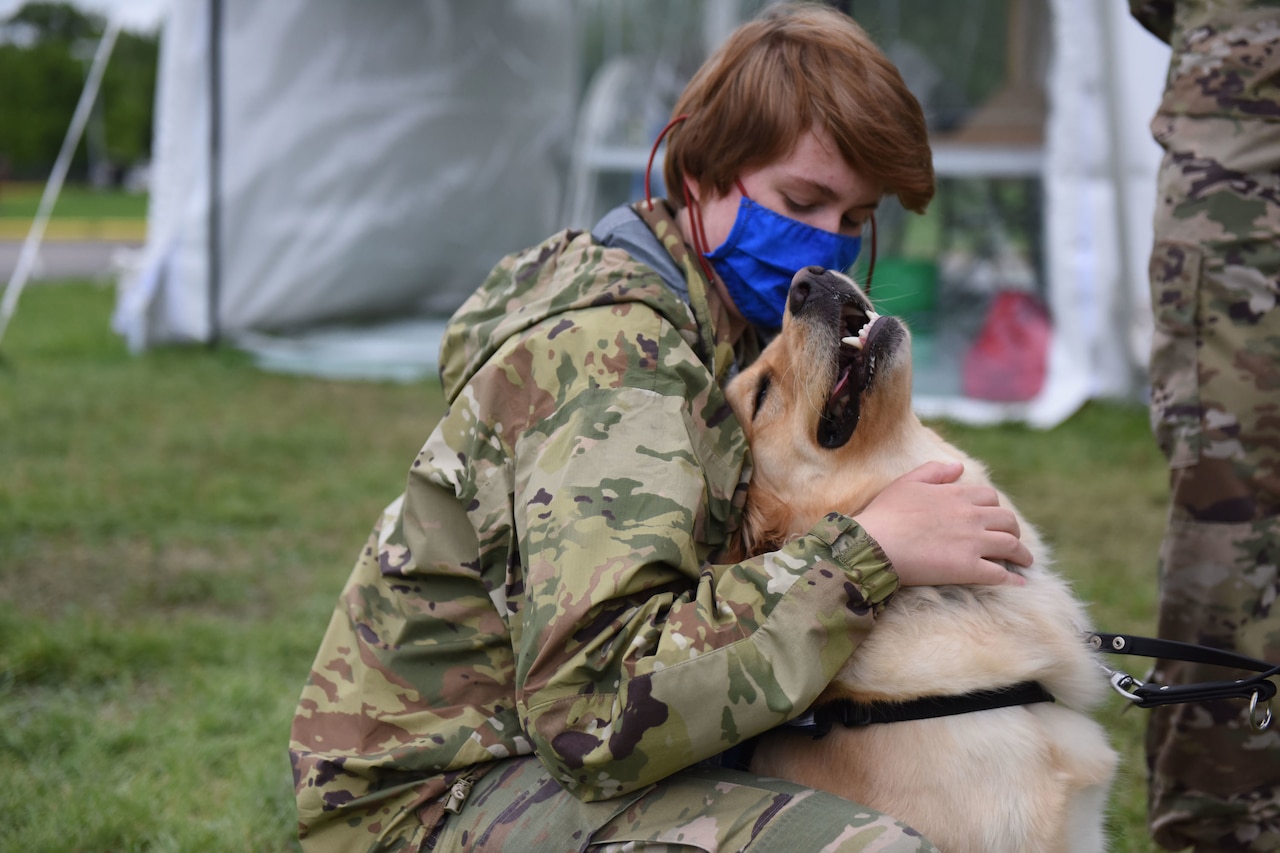
While many facets of society are affected in different ways by the pandemic, in the health care realm, it's not just doctors and nurses who are overwhelmed, Benedek said.
Other front-line workers — such as hospital administrators, janitorial workers and other hospital employees — have been exposed to a lot more sickness, severe illness, surges and greater numbers of deaths, he said.
While most people will be resilient and recover from exposures and experiences, stress and anxiety can be side effects of working in a COVID-19 environment, Benedek noted.
The effects on health care workers can also affect their family members when they are faced with long and extended absences from their loved ones, while they work under varying circumstances and put themselves at risk by having close exposure to the virus, Cozza said.
The invisible nature of the war on COVID-19 can also escalate from stress and anxiety to post-traumatic stress disorder, Benedek said.
"In terms of the challenges confronting health care workers, I think it's important to know that, to some degree, we are in uncharted territory, so it's hard to know how many will develop post-traumatic stress disorder or depression," he said.
If someone has thoughts of suicide, that's a big red flag, and certainly should be taken seriously, Benedek said. The National Suicide Prevention Lifeline and Military OneSource offer the phone line 1-800-273-8255 for crisis intervention.
"Concerns about decreases in levels of function, the inability to concentrate, or the inability to interact as normal with other people should prompt concerns about seeking additional help," he emphasized.
"In terms of resources, I think it's important to emphasize that DOD has both Real Warriors Campaign and inTransition that [are] able to work with National Guard and reserve leaders … to help support not just individual people… but to help create a whole culture at the installation that supports psychological health … and to normalize psychological health care as just health care," Polizzi said.

According to their websites the Real Warriors Campaign encourages help-seeking behavior among service members, veterans and military families coping with invisible wounds. The second mental health care resource, inTransition, is a free, confidential program that offers specialized coaching and assistance for active-duty service members, National Guard members, reservists, veterans and retirees who need access to mental health care during relocation, returning from deployment and other life changes.
Mental health experts anticipate a rise in demand for seeking care, Benedek said, and they are taking steps to be ready for that surge whether it's in a hospital environment or a behavioral health or telehealth capacity.
"[We] think we're a little bit in unchartered waters," Benedek said. "It's hard to have a crystal ball, but we believe that because the concerns are higher across society, the demand will be higher, and we're prepared and ready to address those demands as they declare themselves."
Medical Specialists Outline How to Deal With COVID-19 Stress
The experts speaking in yesterday's session said staying mission-ready while sheltering in place during the COVID-19 pandemic can be difficult for service members, veterans, civilians and their families.
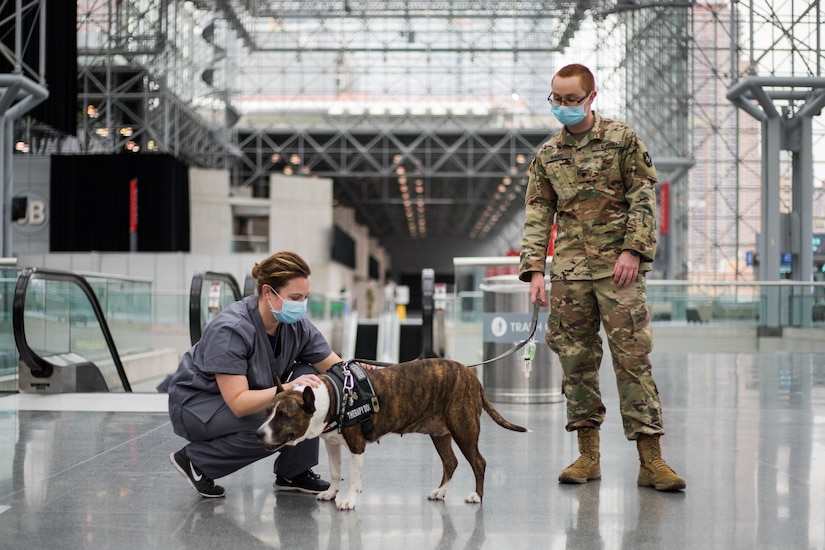
The panelists were Dr. Nicholas Polizzi, action officer for the inTransition Program and the Real Warriors Campaign, Psychological Health Center of Excellence; Dr. Holly O'Reilly, clinical psychologist with the Defense Health Agency; Army Col. (Dr.) David Benedek, chief of psychiatry at the Uniformed Services University of the Health Sciences; and Dr. Stephen Cozza, associate director of the Center for the Study of Traumatic Stress at the USUHS.
"Aside from worrying about the cost of contracting the virus, we worry about the many ways it impacts our lives and for how long," O'Reilly said.
The Defense Department has a number of programs and resources that are available to service members and families — such as the Real Warriors Campaign, which encourages service members and veterans to ask for help, she suggested.
As far as the long-term impact on those on the front lines of health care are concerned, there are measures that all people can take to promote resilience and promote a healthier response to the challenges they're confronting, Benedek said.
"Self-care measures include paying attention to getting good sleep, maintaining good nutritional and hydration habits and devoting time to exercise," he added.
Benedek stressed the things that people can do to promote general physical health and promote mental health. "It's important to try to maintain mental activity. … Exercising mental alertness is important to health," he said.
He echoed Cozza's words about the importance of maintaining social connectivity and social connectedness despite physical distancing, such as staying in touch with family and friends to talk honestly about fears and worries.
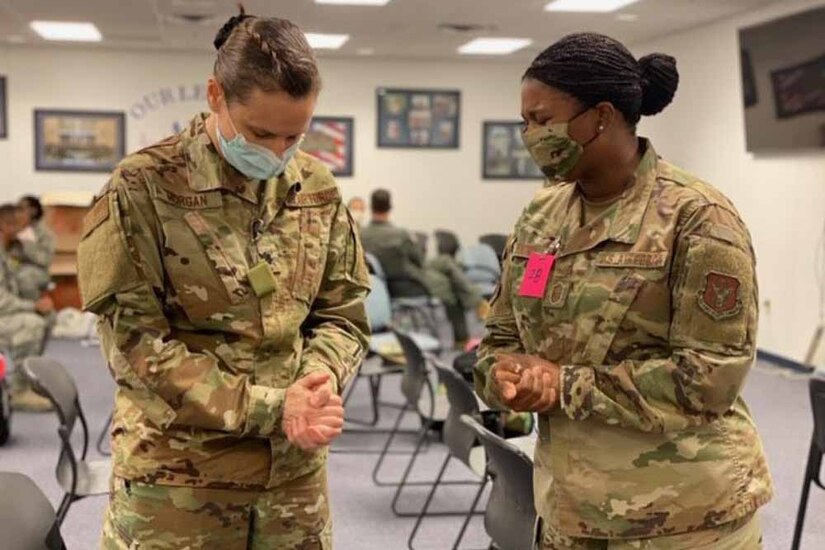
Benedek said it's also critical to share in family experiences and positive and happy things to maintain health and mental health.
Polizzi encouraged people to look into evidence-based, self-guided interventions such as the Real Warriors Campaign, noting Real Warriors offers a wide variety of online mental health resources.
Cozza said it's also helpful to use what service members have done in battlefield settings: having battle buddies, engaging in mentorship with colleagues and recognizing that you're not alone. Everyone is working on a team, and facing the same challenges in the COVID-19 pandemic, he said.
Benedek also suggested taking long breaks and engaging in short stress-reduction techniques, including using simple breathing techniques, meditation and mindfulness.
"One of the things we also need to remember is children's responses to [COVID-19] are likely to reflect the responses of their parents," Benedek noted. He said adults should model calmness in the home — even when they are dealing with something difficult.
"It's [about] supporting family structure, so ensure that you
maintain routines in ways that give people a sense of consistency,
regularity and predictability in their lives. That can be very helpful
for both adults and children," he said.
Twilight Transit
A Mark VI patrol boat transits the Persian Gulf during an expeditionary training mission in the U.S. 5th Fleet area of operations, May 24, 2020.
Night Ops
An MH-60S Seahawk helicopter prepares to take off from the flight deck of the littoral combat ship USS Detroit in the Caribbean Sea, May 26, 2020. Detroit is deployed to the U.S. Southern Command area of responsibility supporting Joint Interagency Task Force South's mission, which includes countering illicit drug trafficking in the Caribbean and eastern Pacific.
Guam Flightline
Air Force Airmen stand on the flightline at Andersen Air Force Base, Guam, May 26, 2020. The airmen deployed to Guam as part of a bomber task force supporting security efforts in the Indo-Pacific region.
Security Team
Marines provide security during a simulated helicopter raid course at Marine Corps Base Camp Pendleton, Calif., May 18, 2020.
Deck Landing
Kirtland Air Force Base Celebrates High School Class of 2020
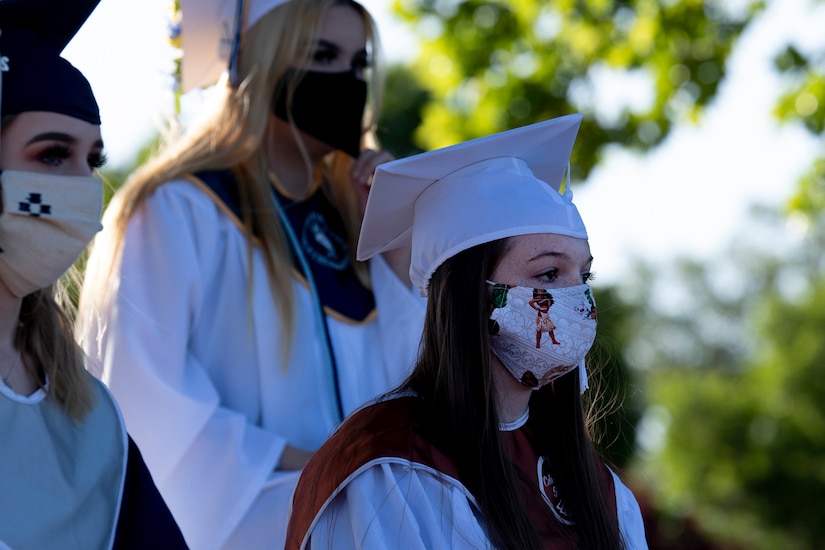
Though it wasn't a typical graduation ceremony, the Kirtland community made it just as memorable by hosting a parade and giving the seniors a chance to walk across the graduation stage in traditional fashion.
"During this pandemic, our graduates have missed out on the opportunity to walk across the stage and be celebrated for this significant milestone in their life," said Air Force Master Sgt. Raechael Evans, a pharmacy flight chief with the 377th Medical Group. "We wanted to make sure they were recognized for all of their hard work, and as a military family, we made it happen."

Evans said the event honored 27 seniors from 17 schools in the local area. It included a parade with seniors riding in classic cars, firetrucks, security forces vehicles and decorated floats created by various groups and councils that volunteered to make the special day possible.
Air Force Col. David S. Miller, the commander of the 377th Air Base Wing, commenced the ceremony and gave congratulatory elbow bumps to each graduate as they walked across the stage.
"This wasn't the day you thought you would have," Miller said. "It's certainly not the one your parents wanted to give you. It's not what your schools wanted to give you, but this is an incredible day where there was an outreach of the heart from leaders that you didn’t even know to make sure you remembered this day."
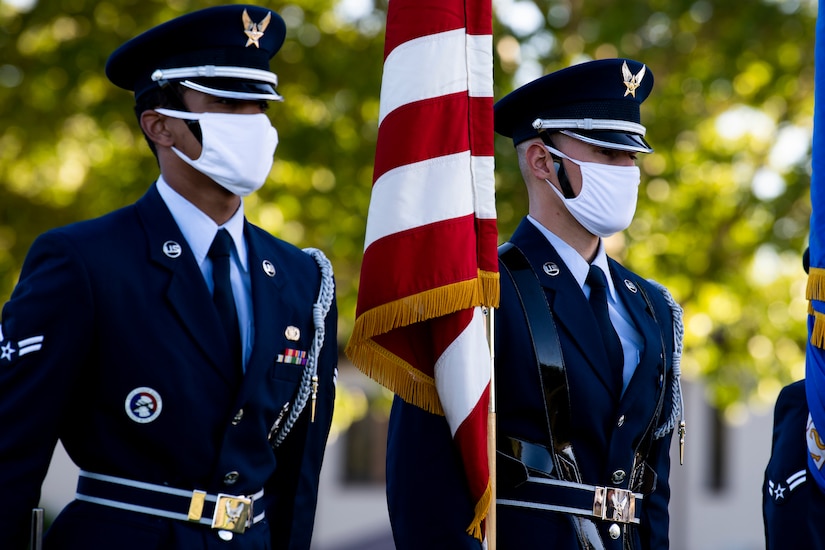
With the help of the community and leadership, the Class of 2020 was able to officially move their tassels to the left and graduate in front of friends and family.
"It's such an amazing experience to be a part of a community that cares for everyone," said Roree Stewart, a graduate from Eldorado High School. "I feel very appreciative being able to relate to a community where we are all loved by so many people that we don't even know. "
(Air Force Airman 1st Class Ireland Summers is assigned to the 377th Air Base Wing.)
Guardsmen Support Antibody Testing in South Florida
An antibody test is a screening for antibodies in the blood that the body makes to fight infections. The body uses these antibodies to develop immunities to viruses such as the flu and COVID-19.
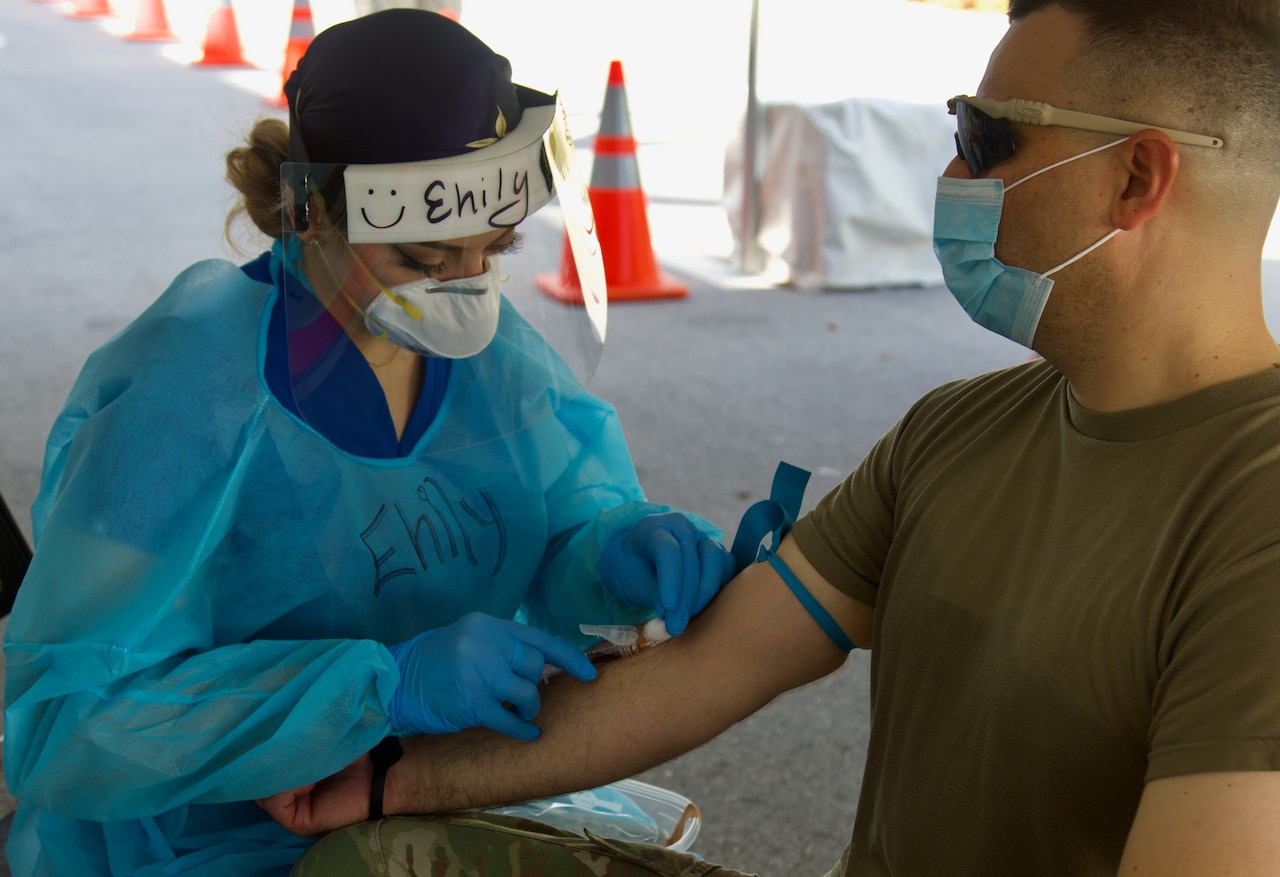
''We are currently using a rapid antibody test. It tests for qSARS-CoV-2 antibodies and will yield a result within 15 minutes,'' said Emma Spencer, the bureau chief of communicable diseases for the Florida Department of Health. ''The National Guard has been instrumental in supporting this mission with testing, traffic control and overall organization. It's been a great collaboration.''
The guard has been supporting the state's COVID-19 response in South Florida since mid-March. The mission began by opening C.B. Smith Park as the first drive-up test site in Florida. It has since evolved into several drive-up and walk-up sites, and now includes one hybrid site. The guard is now supporting the newest evolution to combating COVID-19: the antibody test.
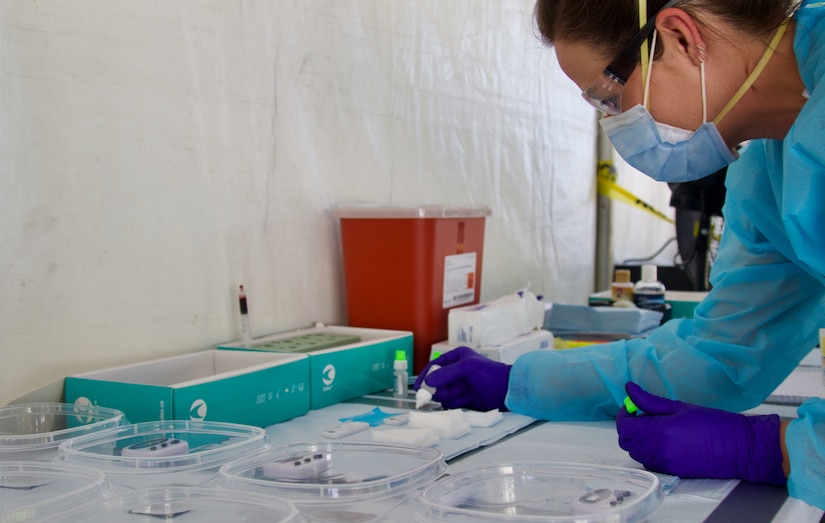
''I started the mission in mid-March at C.B. Smith Park and moved to the Hard Rock, and now I am here at the MBCC,'' said Army Spc. Alvaro Dominguez, a soldier assigned to the 260th Military Intelligence Battalion and a data gatherer at the MBCC antibody test tent. ''I have learned several aspects of the COVID-19 response, to include the importance of the antibody test in understanding the virus.''
The Florida National Guard has more than 2,200 guardsmen on duty in support of Florida's COVID-19 response. Soldiers and airmen are operating 28 community-based testing site and have administered more than 212,000 sample collections. In addition, the guard is supporting the Florida Department of Health's screening operations at seven Florida airports.
(Army Sgt. Leia Tascarini is assigned to the 107th Mobile Public Affairs Detachment.)
